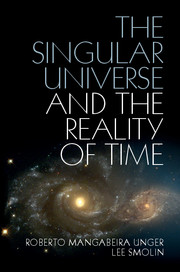The nature and scope of this work
Published online by Cambridge University Press: 05 December 2014
Summary
To think of the universe as a whole rather than of something within the universe is one of the two most ambitious tasks that thought can undertake. Nothing matches it in ambition other than our attempts to form a view of ourselves. In addressing this topic, we soon reach the limits of what we know and even of what we can ever hope to know. We press science to the point at which it passes into philosophy and philosophy to the point at which it easily deceives itself into claiming powers that it lacks.
Yet we cannot cast this topic aside. First, we cannot avoid it because we are driven to understand whatever we can about our place in the world, even if what we do know, or might discover, represents only a small and superficial part of the enigmas of nature. Second, we should not seek to escape it because no one can develop and defend ideas about parts of natural reality without making assumptions, even if they remain inexplicit, about nature as a whole. Third, we need not turn away from it because among the greatest and most startling discoveries of science in recent times are discoveries about the universe and its history. The most important such discovery is that the universe has a history. Part of the task is to distinguish what science has actually found out about the world from the metaphysical commitments for which the findings of science are often mistaken.
- Type
- Chapter
- Information
- The Singular Universe and the Reality of TimeA Proposal in Natural Philosophy, pp. x - xxiiPublisher: Cambridge University PressPrint publication year: 2014



